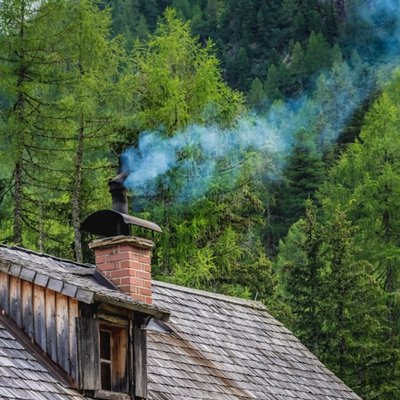avivar(
ah
-
bee
-
bahr
)A transitive verb is a verb that requires a direct object (e.g., I bought a book.).
1. (to fuel)
b. to stoke up
Tras avivar las llamas agregando madera, nos dormimos.Having stoked up the flames with new wood, we went to sleep.
a. to brighten up
Voy a pintar una pared de rojo para avivar mi habitación.I'll have one wall painted red to brighten up my bedroom.
3. (to sharpen)
a. to rekindle
Ir a Florencia avivó mi amor por el arte.Visiting Florence rekindled my love for art.
b. to arouse
Caminar por la playa bajo el sol avivó su deseo de libertad.Walking along the beach under the sun aroused his desire for freedom.
c. to intensify
Leer los poemas del escritor avivó mi pasión por su obra.Reading the writer's poems intensified my passion for his work.
d. to heighten
Trabajar juntos en el mismo proyecto avivó la tensión entre Peter y su exesposa.Having to work together on the same project heightened the tension between Peter and his ex-wife.
a. to liven up
Las duras palabras del político avivaron el debate.The politician's harsh words livened up the debate.
avivarse
A pronominal verb always uses a reflexive pronoun. (e.g., Te ves cansado.).
a. to intensify
La búsqueda del ladrón se avivó tras el hallazgo de nuevas pruebas.The search for the thief intensified after new evidence was found.
a. to be rekindled
Tras la infidelidad, el amor que existía se avivó.After the infidelity, the love between them was rekindled.
8. (to burn)
a. to revive
Las llamas se avivaron cuando echamos ramas secas a la hoguera.The flames revived when we threw some dry branches onto the fire.
b. to flare up
El incendio del bosque se avivó a causa del clima seco.The forest fire flared up because of the dry weather.
9. (colloquial) (to wake up) (Latin America)
A word or phrase that is commonly used in conversational speech (e.g., skinny, grandma).
Regionalism used in Latin America: all the countries in South America, Central America, and the Caribbean. Does not include Spain.
a. to get going (colloquial)
A word or phrase that is commonly used in conversational speech (e.g., skinny, grandma).
Mi marido solo se aviva por las mañanas después de tomar un café.My husband only gets going in the mornings after drinking some coffee.
b. to get cracking (colloquial)
A word or phrase that is commonly used in conversational speech (e.g., skinny, grandma).
Si no te avivas, nunca encontrarás un trabajo.If you don't cracking, you'll never find a job.
Examples
Conjugations
| yo | |||||
|---|---|---|---|---|---|
| tú | |||||
| él/ella/Ud. | |||||
| nosotros | |||||
| vosotros | |||||
| ellos/ellas/Uds. |
Random Word
Roll the dice and learn a new word now!
Want to Learn Spanish?
Spanish learning for everyone. For free.



















